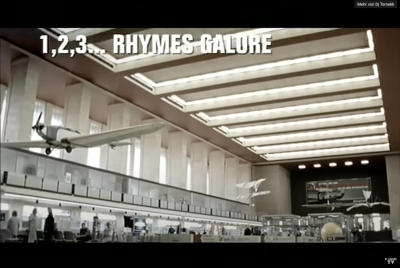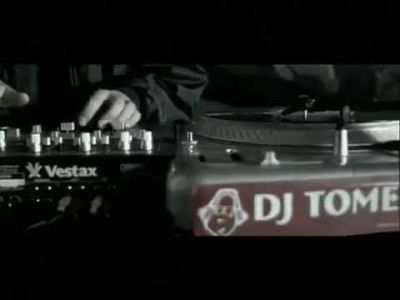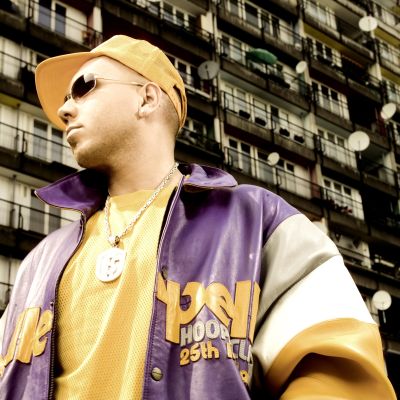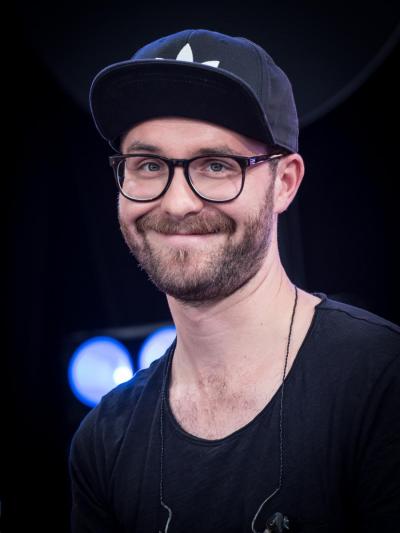He lives for hip-hop: the legendary DJ Tomekk
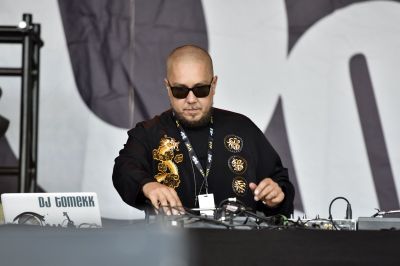
Tomasz Kuklicz was born on 11 October 1975 in Kraków. His creative talent and thirst for knowledge seemed to be in his DNA. One of his grandfathers was a successful painter, sculptor, and globetrotter, leaving the family a rich collection of paintings and sculptures after his death. His other grandfather was an architect. Tomasz’ parents, Dorota and Stanisław Kuklicz, had degrees in geology and were liberal intellectuals who supported their children’s development from an early age. During their childhood, Tomasz and his younger sister, Joanna, therefore lived in comparative prosperity and in a loving family. Despite his father’s alcoholism and frequent work trips, however, Tomasz developed closer emotional ties to him than he did to his mother. In the hope of making a better life for themselves and their children, the Kuklicz parents planned to leave socialist Poland and emigrate to Chicago in the US. Their plans were dashed when, on the night of 12 December 1981 martial law was imposed in Poland. The military and police assumed control. Several thousand supporters of the opposition were interned, tanks rolled through the winter streets, a curfew was imposed, and it was impossible to leave the country. With the constant shortages and rationing of food, Tomasz’ family became caught up in the everyday hardships and hunger that were typical of the time. When, in 1985, his father Stanisław finally found a way to emigrate to West Germany, he initially left his wife and children behind. From that time on, the young Tomasz travelled to and fro between two worlds: between his father and mother, West Germany and Poland.
Tomasz initial fascination for DJ-ing began when he read in the West German youth magazine “Bravo” about a British DJ who recorded songs from the radio and mixed the samples to create new music. Inspired by this form of musical expression, he then made his first highly promising attempts using his mother’s cassette recorder and various other recording media. In 1986 he met a real-life DJ for the first time in a Kraków jazz club. The 11-year-old Tomasz, who was eager to learn more, asked “DJ Witek” to teach him the basics of the craft. For the young boy, this experience firmly cemented his desire to later become a DJ himself. That same year, Tomasz followed his father to West Berlin, and only spent the summer holidays with his mother in Poland. Father and son moved into an apartment in Bastianstrasse 7 in Berlin-Wedding, where they lived modestly. At first, the language barrier and his few social contacts made Tomasz feel like an outsider in Germany. Despite feeling excluded, however, the self-confident, ambitious boy diligently learned German. He first attended the primary school in Gesundbrunnen and later the Diesterweg-Gymnasium grammar school. However, a certain amount of conflict did arise between the school authorities and the Polish boy from the problem area, whom they did not regard entirely without prejudice. He spent his free time on his creative and artistic work: drawing, graffiti, and rap. During this period, the hip-hop scene in Germany was still very small, and German rap was still in its infancy. However, since the early 1980s, the US hip-hop movement had at least gained attention in Germany, with songs such as “(You Gotta) Fight for Your Right (to Party!)” by the Beastie Boys and “Walk This Way” by Run-D.M.C. receiving a large amount of airplay and ranking high in the charts in 1986. This was the new, young sound of Berlin, whose subculture was organised through the city’s youth centres. At the youth club in Badstrasse in Berlin-Wedding, not far from where he lived, Tomasz found people who shared his interests. There, he successfully took part in creative graffiti and social integration competitions and saved up for his first record player by taking on graffiti and design jobs.
At home, though, the neglected boy took on responsibility for the household and the care of his alcoholic father. His father, Stanisław, who owned a small building company, ran into worsening financial difficulties and became increasingly beholden to his addiction and prone to violent behaviour, some of which was directed against his son. Tomasz became the target of his father’s attacks with increasing frequency. He avoided spending time at home as much as he could and learned early on to stand on his own two feet. When his father died from the effects of alcoholism in 1991, Tomasz, who was just 15 and a half-orphan, was suddenly left to fend for himself. There was no question of his returning to Poland, and at his own request, his mother gave her permission for him to stay in Germany. Tomasz spent the last few years until he came of age in the Frohsinn (“Happiness”) children’s home in Berlin-Wedding. During that period, he devoted a great deal of his time to DJ-ing, spending up to eight hours a day practising scratching, sampling, and remixing at the turntables. He made use of his contacts within the small Berlin hip-hop scene, DJ-ed at private parties and school events, and developed his own style, mixing hard beats with soft vocals. It didn’t take long until he made his big breakthrough.
